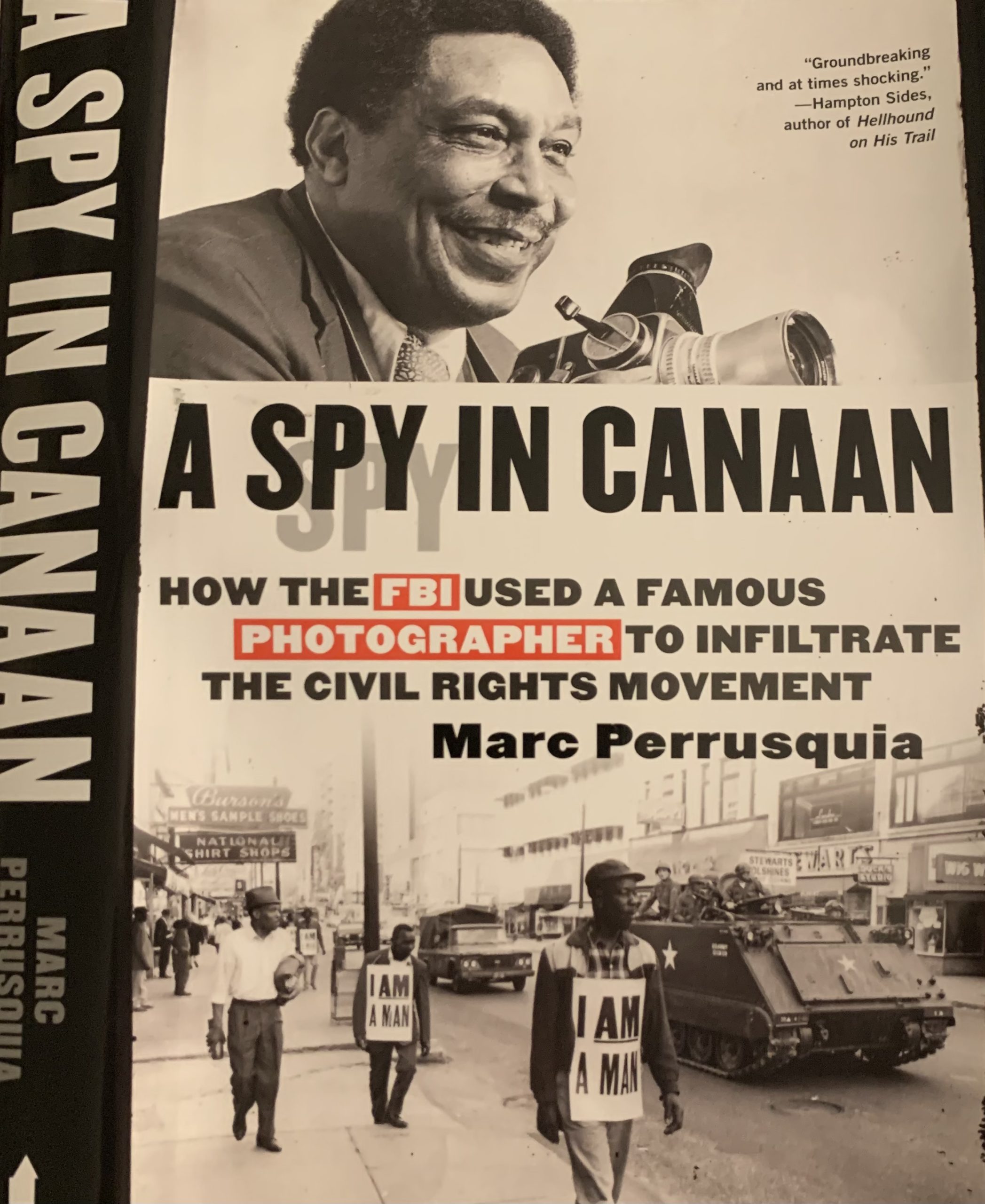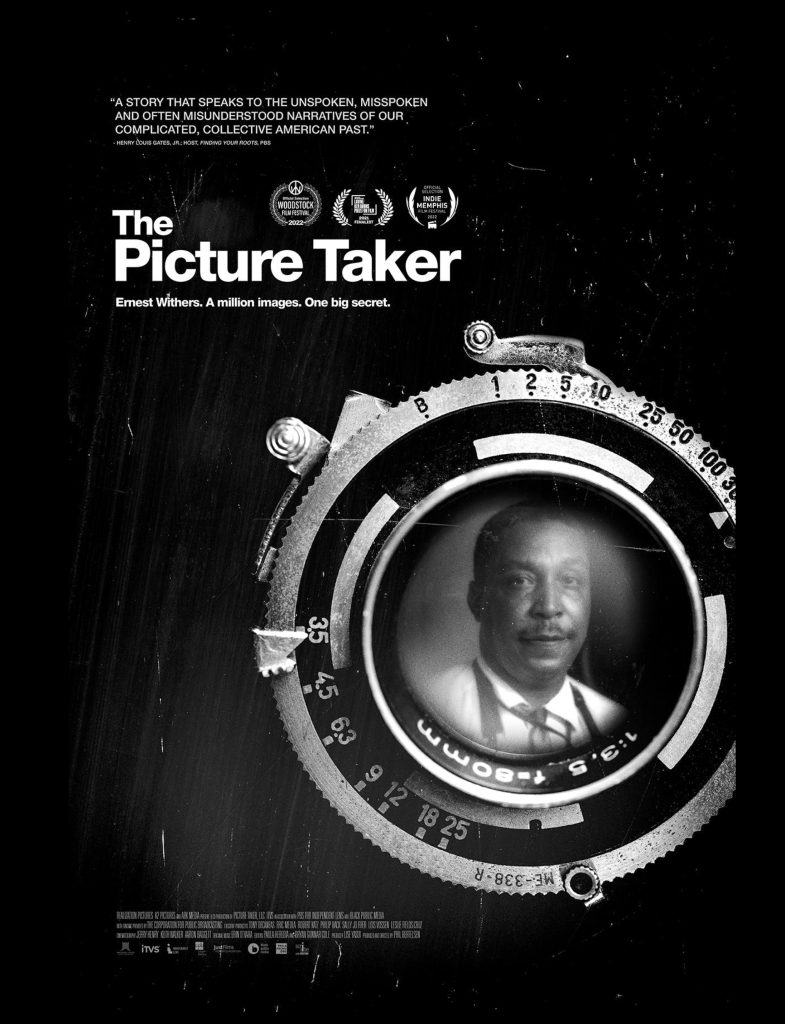‘Spy in Canaan’ Author Reported Picture Taker
By Clint Confehr “The Picture Taker” documentary retells Memphis photographer Ernest Withers’ secret from the Civil Rights Era — revealed decades later in newspaper reports. The book on those reports, “A Spy in Canaan; How the FBI Used a Famous Photographer toInfiltrate the Civil Rights Movement,” is by journalist Marc Perrusquia, director of theUniversity of […] The post ‘Spy in Canaan’ Author Reported Picture Taker appeared first on The Tennessee Tribune.


By Clint Confehr
“The Picture Taker” documentary retells Memphis photographer Ernest Withers’ secret from the Civil Rights Era — revealed decades later in newspaper reports.
The book on those reports, “A Spy in Canaan; How the FBI Used a Famous Photographer to
Infiltrate the Civil Rights Movement,” is by journalist Marc Perrusquia, director of the
University of Memphis’ Institute for Public Service Reporting.
Parts of Perrusquia’s response to a request for comment about the documentary are in The
Tennessee Tribune of Oct. 13-19. The rest is here from the journalist who broke “The Picture Taker” story.

“Withers survives as a civil rights hero … as I say in my book, he did so much good for the
movement through the powerful images he took,” Perrusquia said when asked about the film.
People were harmed by the FBI’s use of Withers’ information, as Perrusquia and the
documentary show.
Withers’ “fascinating and confounding career” included “key flash points in 20th century
history” such as the Rev. Dr. Martin Luther King Jr.’s assassination and Jim Crow South
atrocities which he photographed and sold to support a large family after World War II, film
publicity states. “Withers developed over a million images that came to define America’s civil rights struggle.”
Without Withers, the words “I Am A Man” on picket signs held by Memphis sanitation workers on strike might be a foggy memory now instead of enduring black and white photo journalism.
Withers’ “lesser known work” during “decades of secret FBI service” was uncovered a few years after he died, the documentary states.
The film: dropped in Brooklyn Oct. 14; plays at film festivals in Memphis, Montclair, and
Philadelphia; goes on PBS in winter 2023; and streams on-line.
Perrusquia has “the greatest respect for” producer-director Phil Bertelsen and producer/lead- researcher Lise Yasui. The “true professionals” faced “enormous pressures” in producing the film, he said before he could see the movie. “I trust they will thread the needle and tell a compelling story that will serve the public good.”
Before becoming the public service reporting institute director, Perrusquia’s hard fought
Freedom of Information Act lawsuit started to open FBI files and illuminate what remains
complicated. There’s more. “Only a fraction” of Withers’ records have been released, Perrusquia said. Meanwhile, his Sept. 7 Freedom of Information Act suit is against the Tennessee Valley Authority.
Having studied Withers, Perrusquia can be complimentary and candid.
“He often risked life and limb as he bravely stood in the front lines of civil rights skirmishes to get those photos” in the 1960s, the university institute director said. “Nothing he did for the FBI eclipses that,” the journalist continued. “But while his secret life as a paid FBI informant doesn’t eclipse that good, it does rival it. Unfortunately, there are individuals
who are still trying to whitewash this hidden history that was first exposed more than 12 years ago. That is tragic … we can all learn and grow from it. Make no mistake: Ernest Withers was a prolific political informant who routinely gave the FBI intelligence and photographs on social justice organizations and individual activists — details that helped the bureau undermine these organizations and individuals. Doubly concerning, these details, in turn, often were shared with the Memphis Police Department, which was among the most racist and brutal law enforcement agencies in the South. The information Ernest delivered caused substantial and documentable harm.”
Surveillance continues.
.
https://www.psrmemphis.org/memphis-police-surveillance-of-blm-protesters-has-roots-in-1960s-
panthers/
.
“We may never know all the ways in which citizens were harmed by these operations,”
Perrusquia said. “Despite a massive document release between 2013 and 2016 in response to a Freedom of Information lawsuit I filed against the FBI, we still have only a fraction of the records documenting Mr. Withers’ work as an informant.
“But here’s the thing: These types of intrusive, covert political investigations by law enforcement still exist. We’ve seen them rise in recent years targeting Muslim communities following the 9-11 attacks and again targeting Black Lives Matter activists and supporters following the police killing of George Floyd. Left unchecked, without proper citizen oversight, these domestic intelligence gathering operations are abusive. They are undemocratic. They target and suppress the dissent of law-abiding citizens and in so doing, chill constitutionally guaranteed rights to free speech and protest. The past informs the present. The story of Ernest Withers’ secret, 18-year relationship with the FBI is instructive to our times. The unveiling of his life as an informant through the release of hundreds of FBI documents opened up scores and scores of previously unknown veins of information and insights into these operations. We must study them and learn from them.
“That said, we shouldn’t make the mistake of judging historical figures outside of their times. Ernest Withers was a man of his times. He was a conservative, World War II veteran and a former police officer. He was much older than many of the people he was informing on. As a Black man in the Jim Crow South, he may have felt he had little choice but to cooperate with the FBI. Others did manage to tell the FBI and MPD no. But there is no denying the enormous pressure faced by Mr. Withers and other collaborators. So, in the end, I believe Ernest Withers survives as a hero. He’s a flawed hero. Some can legitimately argue he’s no hero at all. But who among us is perfect? I’ve yet to meet this person. In many ways, Ernest Withers personifies the best and worst — the human — in all of us.”
It’s what makes studying Withers’ life and times “fascinating,” the journalist said with “The
Picture Taker” in mind.
The post ‘Spy in Canaan’ Author Reported Picture Taker appeared first on The Tennessee Tribune.







